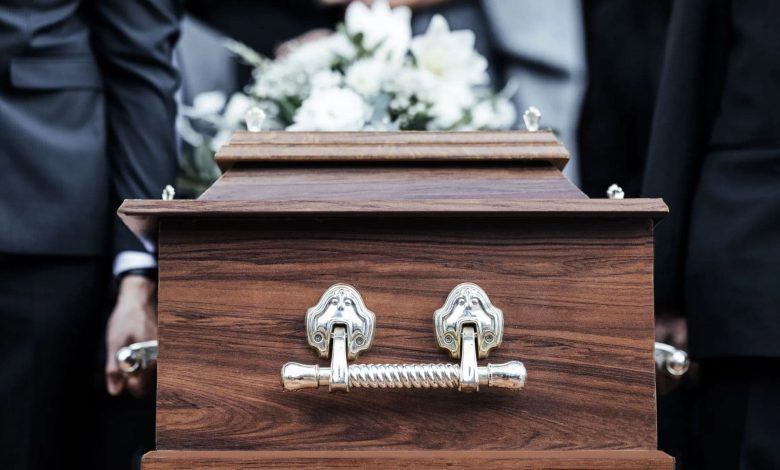
Do you still have to pay back taxes after death? Unfortunately, the answer is yes. When someone passes away in the United States, their tax obligations don’t simply vanish. This includes any unpaid taxes, back taxes, penalties, and interest that accrued before death. These debts become the responsibility of their estate. The estate is essentially everything the deceased person owned at the time of their death.
Who Is Responsible for a Deceased Person’s Taxes?
The responsibility for a deceased person’s tax debt typically falls on:
- The Estate: The estate of the deceased person is primarily responsible for settling any unpaid taxes. This includes federal income taxes, estate taxes, gift taxes, property taxes, and even corporate taxes if the deceased owned a business. The executor, or personal representative, uses the estate’s assets to pay these debts before distributing any remaining assets to inheritors.
- The Executor or Administrator: The executor, named in a will, or an administrator, appointed by a court if there is no will, manages the estate’s finances. They are responsible for filing all necessary tax returns, including the final income tax return, and making sure any tax debts are paid from the estate’s assets. The executor or administrator acts as the deceased’s legal representative in managing their assets and paying taxes, but they are not expected to pay these taxes out of their own pocket. However, executors and administrators can become personally liable for the tax debt if they fail to file returns, don’t pay the taxes on time, or mismanage the estate by, for example, distributing assets to beneficiaries before settling the tax liability.
- The Surviving Spouse: If the surviving spouse filed a joint tax return with the deceased, they may be held liable for the full amount of any unpaid taxes from that return. This applies even if the couple divorced before the deceased’s death. In community property states, the surviving spouse might also be responsible for the deceased’s tax debt even if they filed separately. The IRS offers Innocent Spouse Relief to surviving spouses who meet certain criteria, protecting them from paying their deceased spouse’s portion of the tax liability if they were unaware of the tax debt or were coerced into signing a joint return. A surviving spouse can also file a joint return for the last year the deceased was alive, potentially allowing them to claim refunds due to them.
- Heirs and Beneficiaries: Heirs and beneficiaries are generally not personally responsible for the deceased’s tax debts. There are exceptions, such as if they co-owned assets with the deceased, live in a community property state, or reside in a state with inheritance tax. For example, if a beneficiary inherits property that has a tax lien attached to it, the IRS can claim the proceeds from the sale of that property up to the amount of the lien. In some cases, beneficiaries may be required to pay income tax on income that would have gone to the deceased. For example, if a beneficiary receives payment for work the deceased completed before their death, they must report that income on their personal tax return.

How Are Back Taxes Paid After Death?
The process of paying back taxes after death usually involves:
- Filing Final Tax Returns: The executor or administrator is responsible for filing a final income tax return for the deceased. This return covers income earned from January 1st of the year of death until the date of death. Any unfiled tax returns from previous years must also be filed.
- Estate Tax Returns: If the estate generates income after death, such as rental income or dividends, an estate income tax return (Form 1041) may need to be filed.
- Using Estate Assets: Taxes are paid from any available liquid assets in the estate. This could include cash, proceeds from the sale of property, or funds from the deceased’s bank accounts. If these liquid assets are insufficient, the executor may have to sell other assets to cover the tax liability.
What if There Aren’t Enough Assets in the Estate?
When the estate does not have sufficient assets to cover all the debts, including taxes:
- Insolvent Estate: The estate is considered insolvent, and, generally, remaining debts are not collectible. Secured debts, like mortgages, are usually paid first, followed by IRS tax debts, then state tax bills, and lastly, unsecured debts like credit cards. In this case, the IRS may be unable to recover the full amount of the tax debt.
- Spouse’s Liability: If the tax debt originated from a jointly filed return, the IRS can attempt to collect the remaining balance from the surviving spouse.
- Limited Collection: In some cases, if there aren’t enough assets to go through probate, the debts may essentially disappear. The IRS may mark the account as “currently not collectible,” effectively writing off the debt after ten years.
While death may bring an end to a person’s life, it doesn’t eliminate their tax obligations. Unpaid taxes become the responsibility of the deceased’s estate, with the executor, administrator, and sometimes the surviving spouse bearing the responsibility for settling these debts. Understanding how tax debts are handled after death can help families and individuals plan accordingly and avoid potential complications.
FAQs
What happens if a deceased person owes taxes?
The estate is responsible for the tax debt.
What if my deceased parent owes taxes with no estate?
Generally, no one is liable for the tax debt. However, existing tax liens may still be enforceable.
What if my deceased father or mother owes back taxes?
The estate executor should pay the back taxes from the estate. If insolvent, payment may not be required.
What happens to IRS debt when you die?
Your estate is generally responsible.
Do you still have to pay back taxes after death?
Yes.